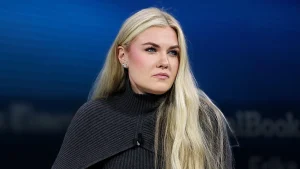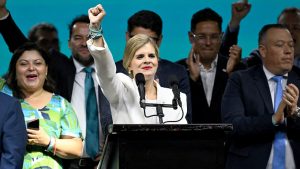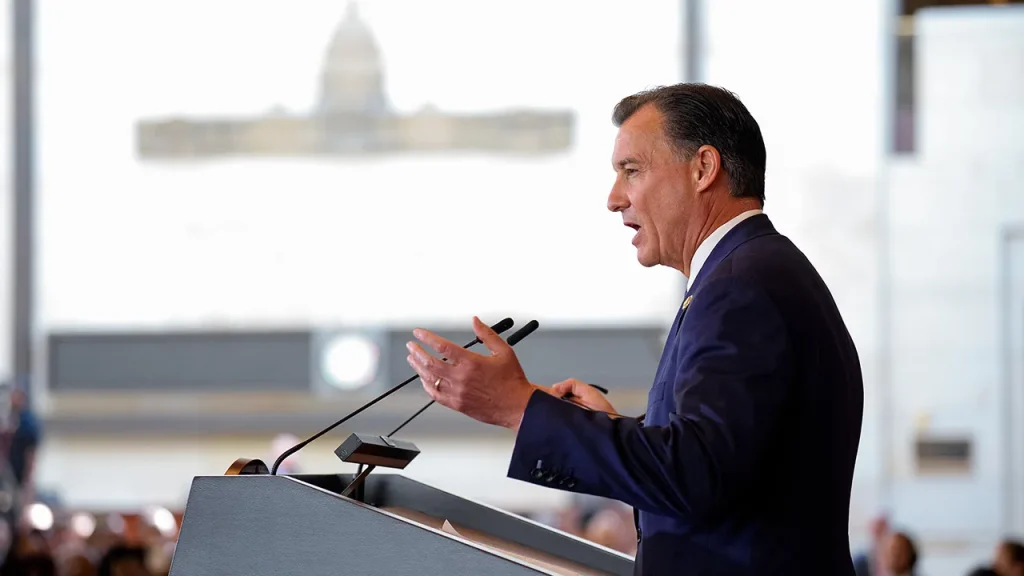BREAKING PARTY LINES: DEMOCRAT SUOZZI ENDORSES CUOMO OVER MAMDANI IN NYC MAYORAL RACE
In a surprising political development just days before New York City’s mayoral election, Democratic Representative Tom Suozzi has broken ranks with his party’s leadership to endorse former Governor Andrew Cuomo, who is running as an independent candidate. Suozzi’s endorsement directly contradicts House Minority Leader Hakeem Jeffries, who recently backed Democratic nominee Zohran Mamdani. “I’m a Democratic Capitalist, not a Democratic Socialist. I endorse Andrew Cuomo,” Suozzi declared on social media, expressing concerns about Mamdani’s self-proclaimed socialist ideology and limited experience for managing America’s largest and most complex city. Suozzi emphasized the need for leadership focused on fighting crime rather than “undermining the police,” creating jobs rather than “harming the economy,” and keeping taxes manageable for middle-class families.
This endorsement highlights the growing divide within the Democratic Party regarding Mamdani’s candidacy, which has left many high-ranking Democrats hesitant to take a clear position. While Jeffries finally endorsed Mamdani last week after months of avoiding the question, Senate Minority Leader Chuck Schumer has remained notably silent on the matter. Suozzi’s decision is less surprising given his moderate positioning and history of crossing party lines—he has voted against Democratic consensus 12% of the time in the current Congress. Cuomo warmly welcomed the endorsement, describing Suozzi as “smart, results-driven, and a true public servant” whose “common-sense leadership is exactly what New York needs.”
Mamdani, a 34-year-old democratic socialist, stunned the political establishment when he secured the Democratic nomination for mayor in June, defeating ten other candidates. His platform includes controversial positions such as raising taxes to fund expanded social programs, reevaluating U.S.-Israel relations, and implementing rent freezes across New York City. These policy stances have clearly made many established Democrats uncomfortable, leading to the hesitancy we’ve seen from party leaders. Beyond Jeffries, only a small number of prominent Democrats have publicly backed Mamdani, including New York Governor Kathy Hochul and state assembly speaker Carl Heastie, leaving a noticeable gap in unified party support behind their official nominee.
When Jeffries finally did endorse Mamdani, his statement focused narrowly on Mamdani’s attention to the city’s affordability crisis and respect for “the will of the primary voters and the young people who have been inspired to participate in the electoral process.” When questioned whether Senator Schumer should also endorse Mamdani, Jeffries deflected, saying his statement “speaks for itself.” This cautious approach suggests significant uneasiness among party leaders about fully embracing a candidate whose progressive positions may alienate moderate voters or conflict with established Democratic priorities, particularly in a high-profile race for America’s largest city.
Cuomo, who entered the race as an independent after failing to secure the Democratic nomination, is positioning himself as the moderate alternative to Mamdani’s progressive agenda. His campaign has emphasized his experience governing New York State and managing complex crises, implicitly contrasting with Mamdani’s relative inexperience in executive roles. Suozzi’s endorsement reinforces this narrative, with the congressman specifically citing Mamdani’s “thin resume” as unsuitable for managing New York City’s complexities. The endorsement from a sitting Democratic congressman provides Cuomo with valuable credibility and potentially signals to moderate Democratic voters that crossing party lines in this election is acceptable.
Despite the internal Democratic divisions and high-profile endorsements for Cuomo, current polling suggests Mamdani maintains a significant lead heading into Election Day on November 4. According to recent Quinnipiac University findings, Mamdani holds 43% support among likely voters, compared to Cuomo’s 33% and Republican candidate Curtis Sliwa’s 14%. This lead indicates that even with establishment hesitancy and notable defections like Suozzi’s, Mamdani has successfully mobilized a coalition of progressive and traditional Democratic voters sufficient to maintain frontrunner status. The remaining question is whether late endorsements and final campaign pushes will significantly shift these numbers before voters make their final decision next week in an election that could dramatically reshape the political landscape of America’s largest city.















